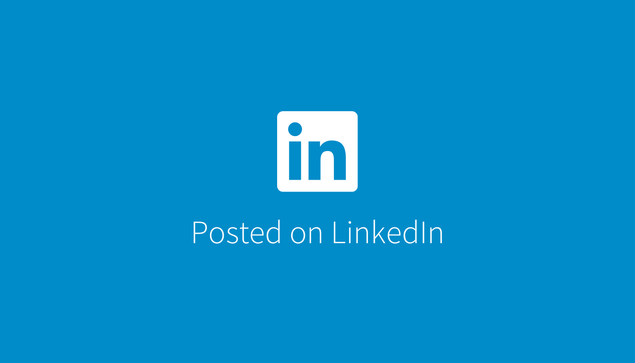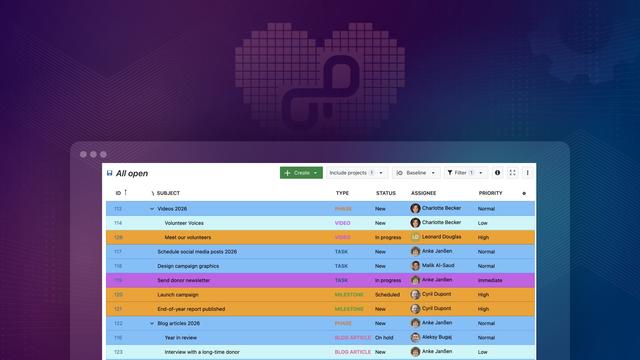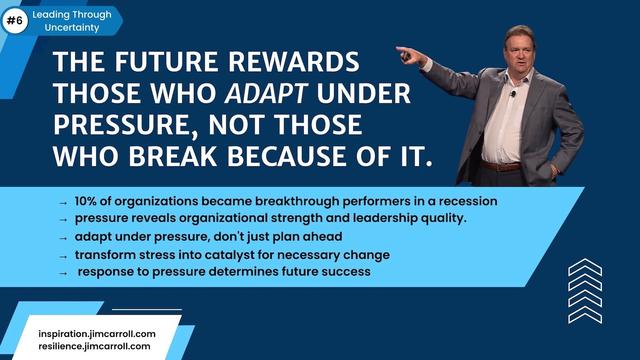It’s a beautiful metaphor!
Books offer nourishment & healing for the mind. They can be havens, where individuals can explore, find inspiration & gain insight.
This comparison highlights the importance of access to literature & learning for mental well-being & intellectual growth.
Frühere Suchanfragen
Suchoptionen
#Growth
... this house is in remission... #neoplasm #growth #tumor #biohorror #lovecraftian #lovecraft #horror
#Water companies’ pollution incidents in England increased by 30% in 2024
The sector, which had been set a target to reduce spillages by 40%, needs ‘radical reform’, campaigners say
#privatisation #fail #UKpolitics produces #growth after all ...
#UKPol #UKEcon #Prices #Inflation #Growth That'll be Rachel from accounts with her finger on the pulse then. Ye gods, it really is 'Alice through the Looking Glass when you live in the Westminster Village. But of course they're all on 'Easter Vac' now don't you know know. #LINO
https://www.theguardian.com/politics/live/2025/apr/16/rachel-reeves-economy-trade-tariffs-china-labour-conservatives-lib-dems-reform-uk-politics-live
#Horizontal #Photography #Outdoors #AgriculturalField #Yellow #Plant #Agriculture #Landscape #Scenery #Flower #Tree #Nature #Sky #RuralScene #Cloud #Sky #Springtime #Rain #Farm #Land #Growth #Green #Color #Environment #Grass #Horizon #Day #Tranquility #BeautyInNature #Meadow #Hill #Non-UrbanScene #Blossom #Canola #Weather #Monoculture #Landscaped #Cultivated #Travel #InBloom
Business of games: 8 biggest funding rounds, partnerships, and trends from the last week
1. Star Citizen funding reaches $800M
2. TinyBuild sells QA firm Red Cerberus..... (more)
https://businessofgames.icartic.com/p/top-8-game-industry-investments-and-6f9
I don't know if you're like me, but after finishing a book I often can remember whether I liked it or not. Less about what really struck me and what I particularly liked (or disliked) and how useful it was/is to me. To cope with that I created me a system that helps me reflect on it, and keep valuable insights about it. It's all in my 𝙎𝙚𝙘𝙤𝙣𝙙 𝘽𝙧𝙖𝙞𝙣
As I just finished reading Adam Grant's famous 𝙃𝙞𝙙𝙙𝙚𝙣 𝙋𝙤𝙩𝙚𝙣𝙩𝙞𝙖𝙡: 𝙏𝙝𝙚 𝙎𝙘𝙞𝙚𝙣𝙘𝙚 𝙤𝙛 𝘼𝙘𝙝𝙞𝙚𝙫𝙞𝙣𝙜 𝙂𝙧𝙚𝙖𝙩𝙚𝙧 𝙏𝙝𝙞𝙣𝙜𝙨, here are some of my notes.

"The future rewards those who adapt under pressure, not those who break because of it" - Futurist Jim Carroll
Over the last five days, I’ve shared how we lead ourselves and our organizations through this moment of global volatility—one shaped by economic uncertainty, political instability, and cultural retreat from the future.
Beginning by reaffirming belief in progress, even when it feels stalled
Confronting fear with action
Challenging nostalgia with vision
Spotlighting innovation as the antidote to inertia
Emphasizing the importance of thinking across time horizons—managing today while preparing for tomorrow
But there's something deeper that sits underneath all of that: pressure..
That’s the real test—managing this moment. Keeping our heads on straight. Not letting the negativity consume us or define our future. If there’s one constant through every downturn, disruption, or crisis, it’s this: stress is the defining force of the moment. And how we respond to that stress—organizationally, personally, and strategically—determines whether we fall back, freeze up, or forge forward into what’s next.
That’s why today, it’s not just about planning for the future.
It’s about learning to adapt under pressure.
Every moment of disruption applies pressure. And pressure reveals everything. It reveals which organizations and individuals have foundations that flex, and which ones crumble. It reveals leaders who focus forward—and those who fold under volatility.
Right now, we’re not just navigating an economic downturn. We’re navigating a world defined by compounding stress—market stress, leadership stress, and system stress. But stress, when met with strategy, becomes fuel for the future.
I’ve written about this before: “It’s in our response to volatility that our future is defined.”
The most future-ready companies don’t panic. They channel pressure into progress. They don’t crumble under stress—they restructure, refocus, and realign. They transform pressure into precision—cutting noise, not capacity. They rethink agility, not just in structure but in mindset. They use stress as a forcing function—to do what needed doing all along.
My advice is clear: You don’t rebuild your organization for the next crisis. You rebuild during this one—for the world that follows.
Stress is unavoidable. But breaking is not.
**#Adaptation** **#Pressure** **#Resilience** **#Stress** **#Future** **#Crisis** **#Leadership** **#Growth** **#Strategy** **#Volatility**
Growing from 5 to 50 people? Congrats!
With more tasks, staying focused gets harder. Our #Attribute #highlighting feature (Enterprise add-on) helps you organize by using color to spotlight:
Priorities
Due dates
Status
https://www.openproject.org/blog/prioritize-tasks-attribute-highlighting/

Wiz's $32B GTM Playbook: Unpacking the Formula (Part I)
https://www.cybersecuritypulse.net/p/wizs-32b-gtm-playbook-unpacking-the
#HackerNews #Wiz #GTM #Playbook #Cybersecurity #Business #Strategy #$32B #Growth

Unlock new growth with @ombra 's sales services—strategic solutions designed to drive results and expand your reach. Let’s accelerate your success today!
https://zurl.co/yFFZt
#Sales #Growth #StrategicSolutions #SalesSuccess #AccelerateYourBusiness
"Benchmarking" is often missing from performance or growth conversations in the workplace
And when we leave that out, a growth mindset approach can come across like gaslighting or moving goalposts: like Mario, we reach the end of a level only to be told that the princess is in another castle.
If we don't acknowledge that getting to that point means finishing a level beyond where we were before, it can be perceived as endlessly moving goalposts, rather than achieving another stage of growth and celebrating that before diving back in to work towards the next stage of growth.
#PeopleManagement #Growth #Performance #PerformanceManagement #PowerDynamics
https://managinginthemargins.com/benchmarking-and-performance-management-acb0580ba44e

Biology Lessons In Degrowth by
George Tsakraklides
‘The best type of degrowth is practiced as a pre-emptive measure at a time of health and abundance, not when it is too late, to ensure that maximum resource is conserved for the difficult times ahead.’
Biology Lessons In Degrowth

"Commission President von der Leyen has embarked on a radical deregulation campaign, with the clear intention to dismantle rules that business lobbies dislike, including social and environmental standards. The EU has seen deregulation waves before, but it’s very different this time: it’s not only far more comprehensive and ruthless, there’s unprecedented levels of support for it among governments and in the European Parliament."
by @corporateeurope: https://corporateeurope.org/en/2025/04/why-progressives-must-organise-stop-eus-deregulation-wave

Fairness Across the World https://openaccess.nhh.no/nhh-xmlui/bitstream/handle/11250/3184837/DP%2006.pdf?sequence=1&isAllowed=y
"… the meritocratic #fairness view is not universally accepted, and plays only a marginal role in many countries, especially outside of the Western world.
… #meritocracy is particularly prominent in richer countries
… people’s belief about the source of #inequality is crucial for whether they consider inequality in their society to be fair, but we also establish that these beliefs are particularly important in countries where people endorse the meritocratic fairness views
… It appears plausible that the meritocratic fairness view is conducive to economic #growth
… cross-country differences in #redistribution through taxes and transfers also are associated with differences in fairness views, with more redistribution in countries with a higher share of meritocrats, which highlights the importance of incorporating #heterogeneity in both fairness preferences and beliefs when studying the political economy of redistribution
… people’s view on redistribution is primarily driven by fairness considerations, the perception that inequality in their country is unfair, rather than #efficiency considerations"
#ExperimentalEcon
"Be a time traveller. Manage today's crisis. But strategize for tomorrow." - Futurist Jim Carroll
Downturns are not just economic events. They are stress tests for leadership.
When pressure builds, plans unravel. Priorities scatter. Noise takes over. People panic. That’s when some leaders retreat—shrinking their vision, delaying decisions, or hoping someone else will take the next step. But others stay grounded. They hold the line—for their teams, their strategy, and their purpose.
This is real resilience. Not slogans. Not survival But the ability to move across time—anchoring the present, while building for the future.
You have to be a time traveller: respond to the moment, while keeping your eyes locked on what comes next. Resilient leaders don’t just manage the current crisis —they hold it together until the future arrives.
Here’s what the data shows from past downturns:
- the most resilient organizations didn’t retreat into reactive cycles.
- they didn’t discard their long-term vision under short-term fear.
- they remained disciplined on costs and intentional on growth.
- they protected their people, their customers, and their momentum—not just their margins.
The fact is, while they managed the crisis in real time, they never lost sight of the bigger arc.
- they thought across multiple time horizons at once:
- they actively manage today.
- all while preparing for tomorrow.
- and positioning for the rebound that always comes.
They didn’t flinch. But they didn’t charge blindly either. They led with calm, communicated with transparency, and made decisions that reflected long-term confidence — not panic.
That’s the essence of future-ready leadership.
So as the pressure rises, the question is simple: Are you retreating—or reinforcing? Are you in one time zone or several?
Because the leaders who shape what’s next aren’t the ones with the boldest slogans. They’re the ones who stay clear, steady, and focused—while keeping one foot in the future.
Be a time traveller.
Manage the crisis.
But never stop building what’s next.
----
Futurist Jim Carroll is sharing his insight on resilience and leadership in this series. You can find the full archive, as it unfolds, at https://tomorrow.jimcarroll.com
**#TimeTravel** **#Leadership** **#Resilience** **#Crisis** **#Strategy** **#Future** **#Opportunity** **#Growth** **#Uncertainty** **#Momentum**
Analysts & investors have pointed to this week's sharp selloff in #Treasuries & weakness in the #dollar as a sign of faltering confidence in the world's biggest #economy.
"There's clearly an exodus from #US assets. A falling currency & bond market is never a good sign," said Kyle Rodda, senior financial #markets analyst at Capital.com. "This goes beyond pricing in a #growth slowdown & #trade uncertainty."
Trump 'buckled under the pressure' of failing markets | Yanis #Varoufakis explains Trump U-turn
https://www.youtube.com/watch?v=0ou67YmnihY
#us #usa #trade #tariffs #markets #stock #bonds #growth #china #dependency
In February 2025, we celebrated 10 years of PyCon Namibia! Developers from around the world joined us to learn, share, and grow in the open-source community.
Since 2015, PyCon Namibia has connected local programmers with global opportunities, helping many advance their careers and contribute to Namibia’s growing tech scene.
Check out my latest article reflecting on this milestone and staty tune for the next one.
Read the full story: https://kafkai.com/en/blog/reflecting-on-pycon-namibia-2025-a-decade-of-open-source/
#PyConNamibia #OpenSource @ThePSF @django Adaire @apify @chaoss #TechCommunity #Growth #Innovation #PyConNamibia2025








